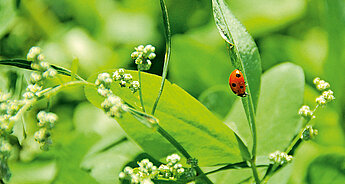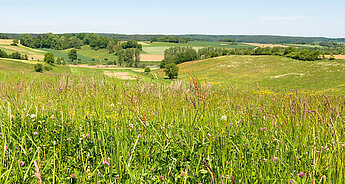
If you added up how much nature would charge for these free services and compare it to what humans produce and the services they provide, it would amount to 500,000 times as much per year.
However, nature is increasingly being destroyed, for instance, through deforestation of rain forests, the straining of the environment or through the overuse of fertilizers and toxins. This is a big threat to biodiversity.
Every day, up to 130 animal and plant species become extinct! Of the 2 million species currently known, 41% (820,000) are endangered.
Therefore there are many positive ecological, economic, social, and ethical reasons why biodiversity should be protected and preserved.
How does HiPP actively get involved in promoting biodiversity?
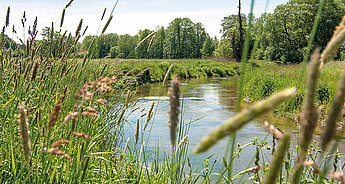
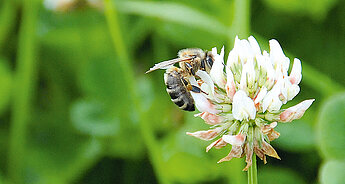
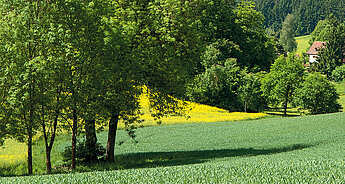
- Organic cultivation protects the soil and groundwater from artificial fertilizers and pesticides, encourages ecological and socially fair farming as well as soil fertility
- Protection of climate and bodies of water through careful, energy-efficient production processes
- Use of traditional fruit and vegetable varieties in HiPP products
- Consistent use of recycled paper to protect the forests
- 100% use of fish from sustainable fishing methods (MSC) or from organic aquaculture
- Support of a seed association which works on cultivation of old and open pollinating varieties
- Promotion of teaching materials against green genetic engineering (school edition “Life out of control”)
- Putting an agricultural model business for biodiversity as a model for HiPP producers to the test
- Member of the Biodiversity in Good Company business initiative
- Support of the Mellifera e.V. association which campaigns for sustainable, appropriate and ecological beekeeping
- Provision of a 3-hectare flower meadow with native plants on our own farm to provide suitable food for bees and other insects

